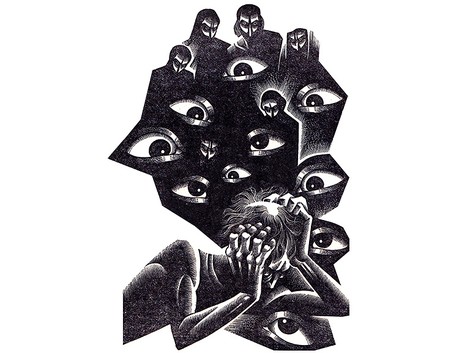Your podcast discovery platform
Curious minds select the most fascinating podcasts from around the world. Discover hand-piqd audio recommendations on your favorite topics.

piqer for: Global finds Technology and society Globalization and politics
Elvia Wilk is a writer and editor living in New York and Berlin, covering art, architecture, urbanism, and technology. She contributes to publications like Frieze, Artforum, e-flux, die Zeit, the Architectural Review, and Metropolis. She's currently a contributing editor at e-flux Journal and Rhizome.
Underearners Anonymous And How Precarity Drives Addiction
Underearners Anonymous (UA) is a self-help group that began in 2006 in New York City, which models itself after the version for alcoholics (AA). Its goals are twofold: helping its members, mostly freelancers, to actually support themselves—and also to reach some vague notion of personal fulfillment supposedly independent of their income. The need for such a program has arisen, writes Caroline Durlacher, because many privileged millennials live in a world in which:
Job security is a thing of the past, aspirants for work have come to be regarded as dispersed economic units within the field of the labor market [...] These symptoms converge in a profile of typical UA candidates: freelancers who are called upon to play the role of both manager and employee and fail at both.
Durlacher begins by prototyping the typical UA member to delve into the psychodramas of being a millennial who is privileged enough to cling to the premise that achieving one’s dreams is possible, while facing an economic reality that indicates something different. The result is a “combination of lofty ambition and crippling self-doubt”. She points out that this personality complex doesn’t sound so different from a member of AA, which actually has a maxim that an alcoholic is “an egomaniac with an inferiority complex”. Not surprisingly, she implies, the demographics of UA might indeed overlap with those of AA.
By exploring the complex relationship between aspiration and financial precarity through the lens of addiction, Durlacher ultimately waxes poetic—and then religious. Existential crisis leads to the search for meaning and often for a higher power, which may take one to self-help books or religion. The problem is that the quest for changing oneself in an unpredictable world, which is the core of both AA and UA, is that for milennials, their own evolution and self-actualization has been sold back to them by the market.

Very interesting. Thanks.